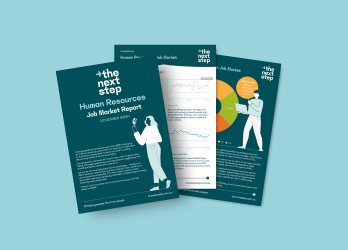Talent Shortages: Business or HR problem?

Talent shortages are causing a crisis for Australian businesses. Employers are crying out for workers and many have jobs they can't fill. The problem is huge in scale, yet many organisations are leaving HR teams to shoulder the crisis on their own. In this blog Craig Mason considers the impact this is having on HR teams and looks at the merits of taking a whole-business approach to dealing with our workforce crisis. Read on to learn more.
Some things are undisputed. Climate change is a thing; Putin is mad; and we currently have record levels of unemployment, with associated Talent shortages.
The current Australian jobs market
As reported by all streams of the media, Australia is facing a “great jobs boom”. Employers face the stiffest competition for workers in almost half a century and there is a battle to fill roles…any roles.
The Australian Financial Review reported on the 30th of June that Australia has 400,000 jobs that can’t be filled. On the 23rd, the AFR reported that two-thirds of large businesses in Australia were reporting difficulty in securing staff.
There is no shortage of anecdotal evidence of the challenges faced by most industries and organisations but the Australian Bureau of Statistics has particularly pointed out building trades, clerical workers, labourers, sales, hospitality and health workers as being the hardest to find.
Clearly the impending Jobs and Skills Summit in September demonstrates there is recognition of this issue. (this will include unions, employers, civil society and governments “to address shared challenges”).
No quick-fix on the horizon
Dealing with the current backlog of visa applications will assist, but won’t solve, the immediate problem. Of the current backlog of 961,016 (as at 20th July AFR), there are 57,906 skilled visa applications and another 13,806 temporary visa applications. Even if they all arrived in the next 12-months, (which they won’t), that still means a shortfall of 330,000 vacancies (using June’s numbers).
Houston we have a problem!
Employment is a time lag indicator of the economy (or so I was told by Mike McGrath in Eco 1 @UTS many moons ago). Even if there is cooling of the economy later this year and into 2023 with rising interest rates, there will be a fair way to go before a normalised employment market is achieved.
Talent shortages are an existential business problem for many organisations and there aren’t any easy fixes
The HR job market
The Next Step's HR Job Opportunities Index demonstrates record-high levels of demand for HR generalists and specialists alike. At the start of this year the HR job opportunites were growing 2.5 times faster than the national employment market. No question, there are some areas of critical demand that reflect the overall jobs market including, of course, roles in Talent Acquisition.
Those who specialise in sourcing, attracting, recruiting and onboarding people in the current market are under pressure and in demand. In the past 24-months TA job opportunities have risen by a massive 360%. In many cases organisations are having to deal with longer fill-rates, pay more and/or compromise expectations to secure TA talent.
One big problem - two schools of thought
In conversation with HR Executives there appears to be two camps when it comes to organisations and their leaders’ attitudes when it comes to addressing Talent shortages.
For one camp, there is a clear level of appreciation that talent shortages are a major business problem.
On the flip side and in the second camp, there seems to be a large percentage of organisations that still seem to think that the current Talent challenges are a HR problem.
Big difference. Particularly when it comes to business support and resources.
If you accept that there is no magic way of ‘just adding water’ and making instant high-quality candidates, then it becomes a matter of what are the many things that can be done to mitigate the situation.
Its extraordinary to hear that many HR functions and TA leaders are under intense pressure to deal with the current environment without a change of attitude from the business. For instance, maintaining BAU KPI’s of open jobs and/or time to fill. (e.g. an Asia Pac HR team with a KPI of 2% of sales roles open at any one time – thanks McKinsey & Co… love your work).
Nobody expects that HR shouldn’t be at the front and centre of the Talent response, but this has to be recognised for what it is!
Talent shortages are a business problem, not a HR problem
Once companies recognise talent shortages as a business problem, there is much that can be done. Making talent acquisition a company priority is essential. Appropriate actions for all business leaders with associated SLA’s is a start.
You would also expect Boards to be weighing in and asking some hard questions (if they aren't already) about Talent shortages and their material impacts.
The pressure shows no signs of letting up. Turnover in HR and TA teams will continue to increase without proper recognition of the challenges they face. Dealing with the problem is a whole-business issue is the answer.
Craig Mason is the Founder and Director of The Next Step. Craig is one of Australia's most experienced HR practitioners and talent resourcers, having specialised in the HR field since 1992.
Author : Craig Mason Date published : 26/07/2022



